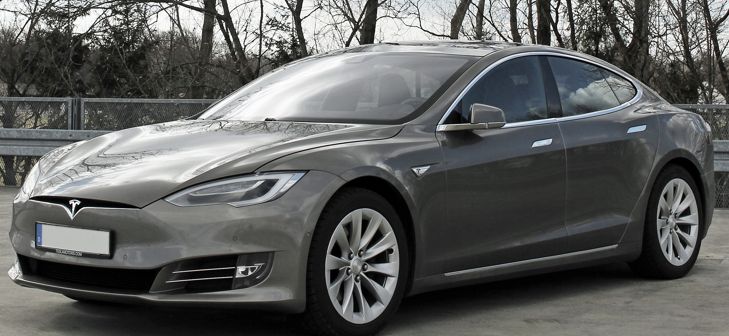Teslas are everywhere in this city. In 2016, Tesla sold about 6,000 vehicles in Hong Kong, more than it did in the U.K., (2,000), in Canada (1,800), and in Australia (1,000) combined. There are good reasons why these vehicles are so popular here: they are fast and gorgeous; range anxiety is not an issue; and the tax incentives did not hurt either.
Needless to say, electric vehicles also have a low carbon footprint, though it is safe to venture that most Tesla owners admire their cars’ oomph more than their environmental saintliness.

In the name of environmental protection, the Hong Kong government used to provide one of the most generous incentives to subsidize Tesla owners. Take, for example, a base vehicle price of HK$800,000. The required vehicle first registration tax of HK$717,500 was completely waived until the government changed its policy last year. The current policy is to waive the first registration tax up to a cap of $97,500.
By any measure, this subsidy was massive. The following table shows how generous our government was in comparison with other parts of the world:
| Country/region | Tax incentive for Teslas |
| California, U.S.A. | USD 7,500 federal tax credit + 2,500 state tax credit |
| Ontario, Canada | CAD 14,000 rebate + 1,000 for wall connector |
| United Kingdom | GBP 4,500 for company car + exemption from London congestion tax |
| Australia | Nil |
| Singapore | Up to SGD 20,000 rebate, depending on emissions level at the point of power generation |
The level of our subsidy was seven to nine times as much as those in Canada or in the United States. The only country that has a comparable subsidy to electric vehicles is Norway, which exempts them from vehicle purchase taxes that are as high as those in Hong Kong. The Norwegian government plans to phase out some of its incentives by 2020.
Instead of saying that the rest of the world is too stingy, why am I suggesting that Hong Kong had been too generous to electric vehicles? These vehicles are more energy efficient than cars based on internal combustion engines. Emissions occur at the power plants rather than at roadsides, which probably produces less harmful effects on public health.
These are valid reasons for taxing gasoline. We already have gasoline taxes among the highest in the world, and electric vehicle owners automatically benefit from not having to pay these taxes.

Electric vehicles are not completely emissions-free. Since power generation in Hong Kong relies mostly on coal, and coal is a relatively dirty source of energy, this reduces the attractiveness of electric vehicles for Hong Kong from an environmental point of view.
Even if they were emissions-free, a sensible environmental policy must weigh costs against benefits. To make a very rough calculation, take the emissions of a high-performance luxury vehicle, the BMW-750, for illustration. Its CO2 emissions are advertised at 187 g/km. If we run it for 200,000 km, total emissions work out to be 37.4 metric tons.
The latest carbon price in the European Union is about 90 Hong Kong dollars per ton. Even if one believes that the true environmental cost of CO2 is ten times higher than its market price (which is unlikely to be true), this calculation could justify a subsidy of at most HK$33,660, a far cry from what members of the Tesla owners’ club in Hong Kong enjoyed.
Of course, a full-fledged cost-benefit analysis will have to take into account more detailed considerations, but it would be hard to escape from the obvious conclusion: the costs of the subsidy on electric vehicles which we gave in the past were an order of magnitude greater than what can be justified by the potential benefits.
After the Hong Kong government capped the incentive at HK$97,500, sales of Teslas in Hong Kong reportedly ground to a halt. Monetary incentives do matter, but the sudden surge and drop in sales before and after the announcement of the change in policy is probably more a result of tax gimmickry and the creative timing of “first registration” than a real threat for Tesla.
There is no reason why such a nice-looking car cannot compete with other luxury models on a more equal footing when the massive subsidy is scaled back.

The vehicle first registration tax in Hong Kong is designed to solve the congestion problem. It is not an ideal solution, because road pricing can arguably do the job more efficiently.
Nevertheless, given the limits of the road system in our overcrowded city, private vehicle users should be taxed for the costs they impose on every other road user. Even if an electric vehicle does not produce any pollutants, its mere presence on the road causes other cars to slow down and to pump out more exhaust.
Until we can solve this problem, this is no time to revert to the huge subsidies we had been giving to private electric vehicles in Hong Kong.
Wing Suen is a professor of economics at the Faculty of Business and Economics, the University of Hong Kong.
